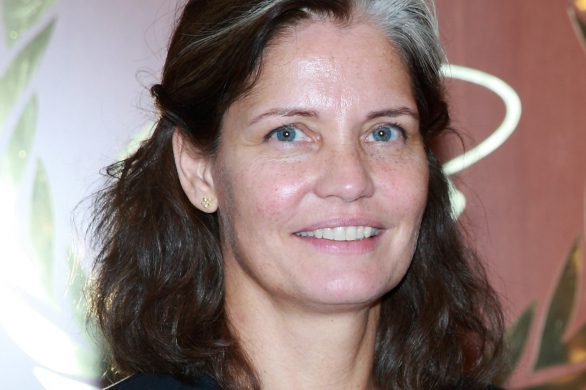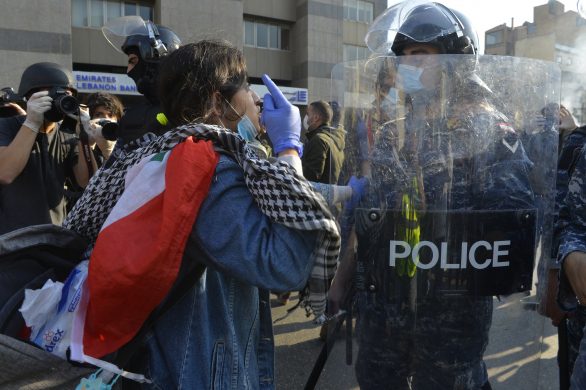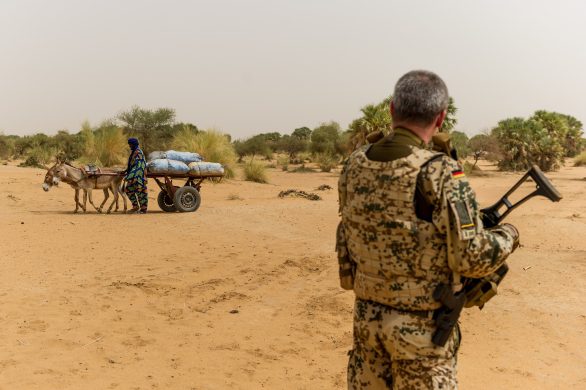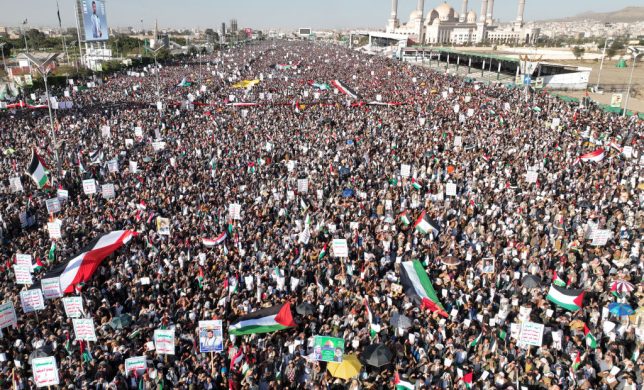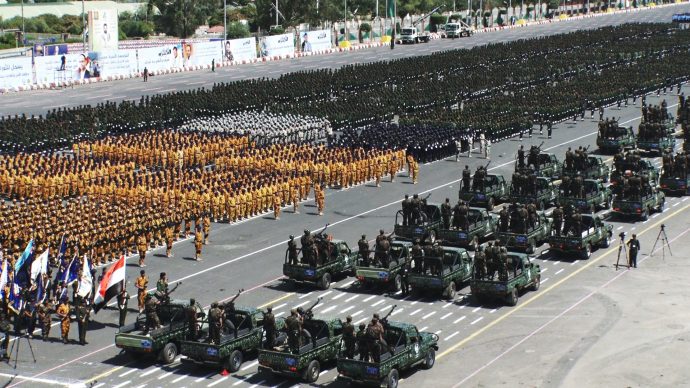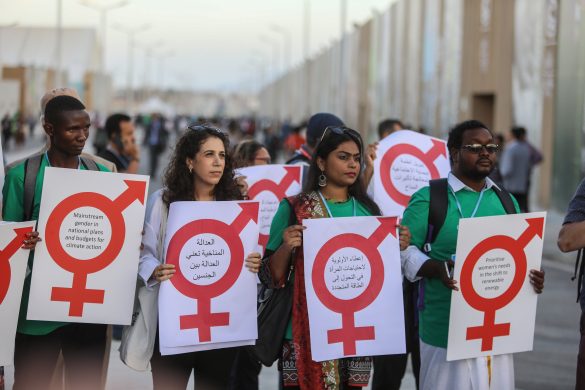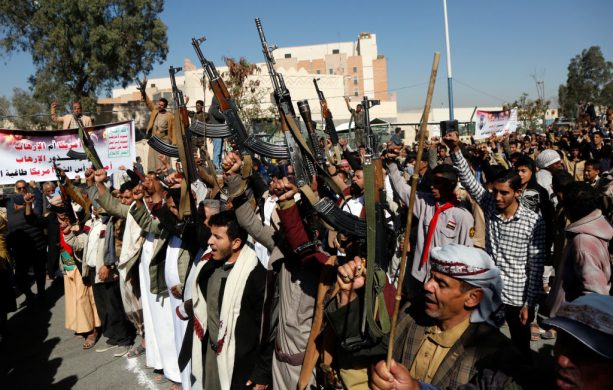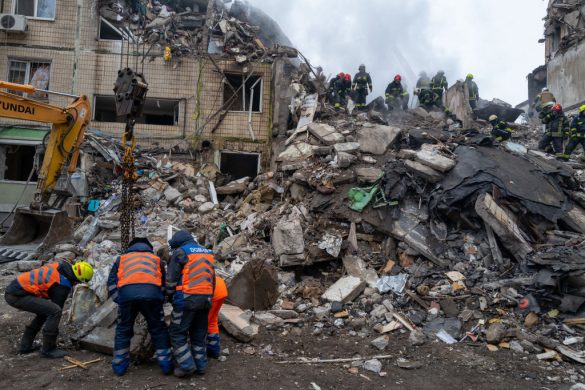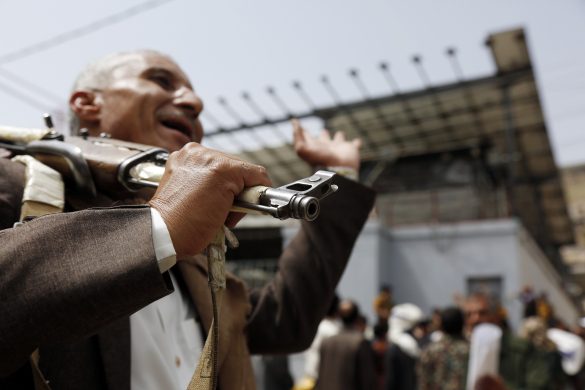SANA’A, 2 May, 2017 (UNHCR): Like millions of others caught up in Yemen’s brutal conflict, 12-year-old Somali refugee Afrah’s immediate concern is surviving the bombs, bullets and gnawing poverty it has created.
But with an eye to her future, she is also deeply concerned that the conflict could prevent her from continuing her education and achieving her dream of one day becoming a doctor.
“I am very frightened by the war but I really want to stay in school,” said Afrah, wearing a green tunic that is the uniform of the Asma School for Girls in the Yemeni capital Sana’a.
1.600 skoler er ubrugelige på grund af krigen
Two years of conflict in Yemen have crippled much of the country and its inhabitants, leaving a staggering 18.8 million people in need of humanitarian assistance and preventing two million children from attending school.
Basic services and institutions, including the public education system, are buckling under the pressure of war. Though public education in Yemen remains free for local and refugee children, more than 1,600 schools are now damaged and unfit for use while others remain close to the frontlines, jeopardizing the safety of students.
For young refugees and asylum seekers like Afrah, whose family crossed the Gulf of Aden to escape war in their native Somalia, the risk of their education being disrupted is already significant. According to a recent report by UNHCR, the UN Refugee Agency, entitled Missing Out: Refugee Education in Crisis, refugee children are five times more likely to be out of school than local children.
“The conflict is not only affecting the psychosocial state and health of both students and teachers, but they are also grappling with poverty and require a lot of support,” explained Afrah’s school Principal Aisha Al Dhafari.
Elevantallet er fordoblet
Her school, like many others across Yemen, is now overcrowded and functioning far beyond capacity, as a result of having to absorb additional students who have been displaced to the area.
“Before the war, one class used to accommodate 60 students and now that has doubled to accommodate up to 120,” Al Dhafari said.
The school now runs double shifts with pupils attending either in the morning or the afternoon, and learning materials and equipment are in short supply. Classrooms are not only overcrowded but also poorly lit, with the lack of electricity in war-torn Sana’a ensuring that the school is powered only through UNHCR-provided solar panels on the roof.
“With the war it has been very difficult to study and we don’t even have text books. We just have to share one book among us all,” Afrah said.
Underviser uden løn
In addition to the impact on students, Yemen’s brutal conflict is also taking a toll on teachers. Most public sector salaries, on which 30 per cent of Yemen’s population depends, are paid irregularly or not at all.
“Teachers have not received their salaries for up to five months and yet they are still turning up to the schools to teach unpaid. They do it just because they believe it is their duty,” says the Head of the Ministry of Education’s Office in Sana’a, Mohammed Al Fadhli.
To address the educational needs of both refugees and Yemenis, UNHCR has been assisting schools and providing educational materials in areas hosting a high concentration of refugee and forcibly displaced children.
Support includes training for teachers, administrators and social workers on child protection, displacement and psychosocial issues, offering early childhood development programmes and informal education classes, and providing students with uniforms and school kits including school bags and stationery.
UNHCR has also repaired damaged and dilapidated schools, installed solar panels and provided essential teaching equipment and educational supplies, such as giving 300,000 textbooks to 20 Yemeni public schools, including Afrah’s, covering 20 per cent of school book requirements across Sana’a.
“Amid war and destruction, the Ministry of Education, its staff, teachers and administrators have done a remarkable job in ensuring the continuation of educational programs in Yemen and the access of refugee and displaced children to education. But they need more support,” said UNHCR country representative in Yemen, Ayman Gharaibeh.
“In addition to taking lives, the conflict in Yemen is also stealing futures. A whole generation is at risk of losing out, and if we do not continue to support access to education for refugees and those forcibly displaced by conflict, the short and long-term consequences will be disastrous,” Gharaibeh warned.
For Afrah, who has remained committed to her studies, despite the pervasive fear of violence and a lack of resources, new schoolbooks means renewed hope in the future.
“I am happy because I finally have books to study with,” she says. “I want to stay in school to finish my education so I can become a doctor,” she says.



